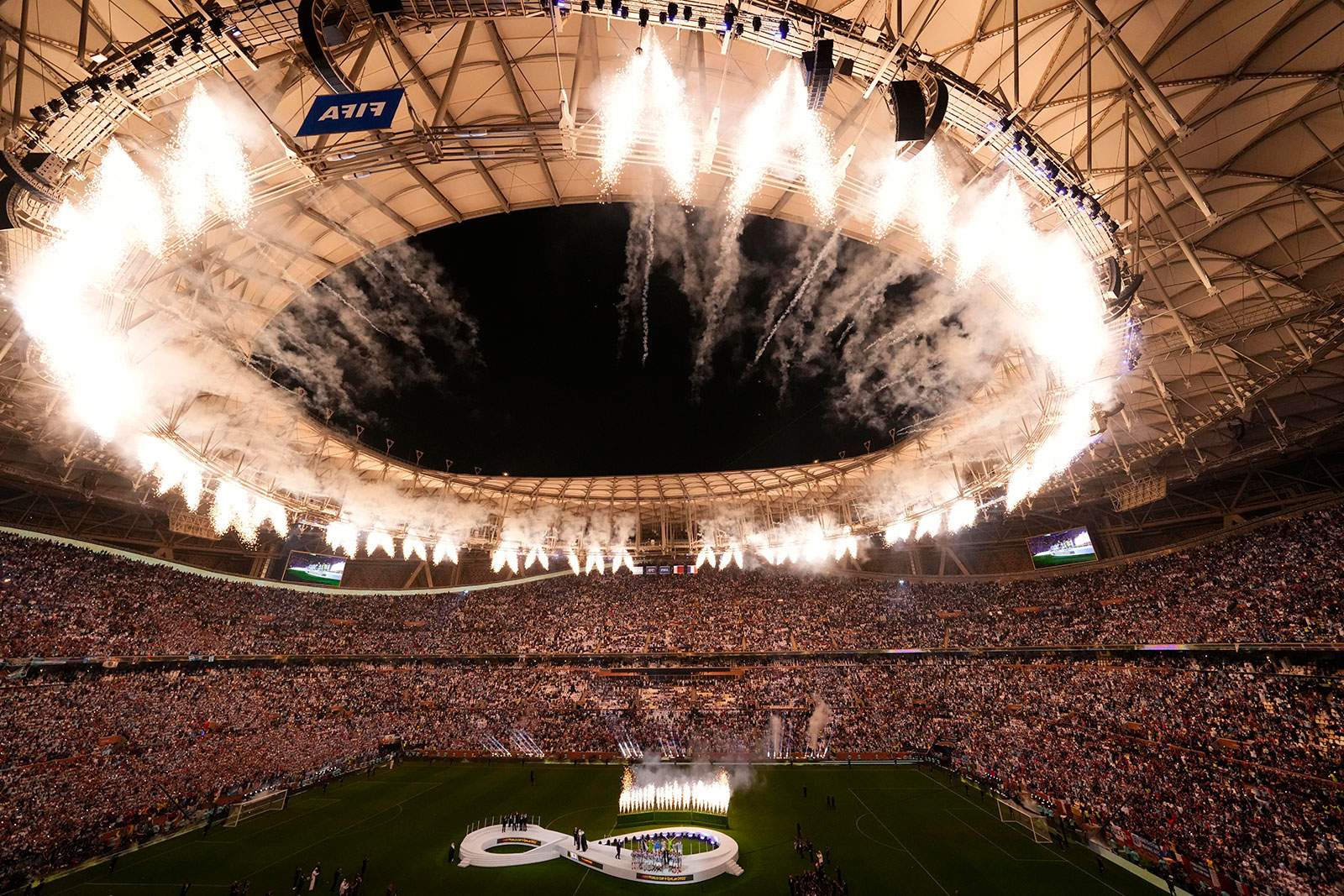
[ad_1]

Several international bodies have renewed sharp criticisms of Qatar and FIFA for glaring human rights abuses and the exploitation of migrant workers before and during the 2022 World Cup.
The World Cup final on Sunday coincided with both International Migrants Day and Qatar National Day.
On Friday, FIFA president Gianni Infantino praised volunteers and organizers for staging the “best World Cup ever,” but activists and critics say Infantino’s comment ignores the sacrifices of migrant workers, who deserve compensation for unpaid wages, injuries and deaths.
Amnesty International, Human Rights Watch, Equidem, Migrant Defenders and other groups have all called on Qatar and FIFA to do more for the workers who delivered the 2022 World Cup.
“However good the football has often been, the tournament has come at a heavy cost for hundreds of thousands of workers who have paid illegal recruitment fees, had wages stolen or even lost their lives,” Steve Cockburn, Amnesty International’s head of economic and social justice, said Saturday in a statement to CNN.
“These workers and their families deserve compensation, and we are still waiting for FIFA and Qatar to commit to ensuring remedy for everyone who made this World Cup possible,” Cockburn added.
Cockburn acknowledged that Qatar has instituted some labor reforms, but said that they don’t go far enough. Minky Worden, the director of global initiatives at Human Rights Watch, agreed.
“Even the labor reforms Qatar did make came too late, were too narrow in scope, or were too weakly implemented to benefit many workers,” she wrote in a blog post published Friday ahead of the World Cup final.
“This World Cup in Qatar will indeed be remembered, for all the wrong reasons: as the most expensive sporting event ever — and the most deadly,” Worden added.
Qatar’s government says that over 30,000 foreign laborers were brought in to build the stadiums for the World Cup. Seven new stadiums for the World Cup rose from the desert, and the Gulf state expanded its airport, constructed new hotels, rail and highways.
All were constructed by migrant workers, who — according to Amnesty International — account for 90% of the workforce in a near-three million population.
[ad_2]